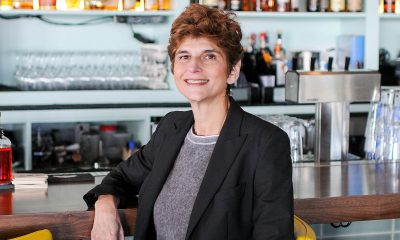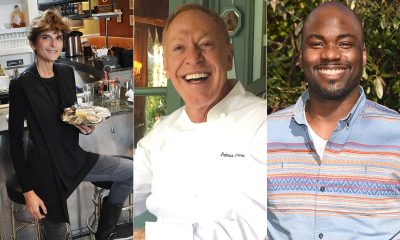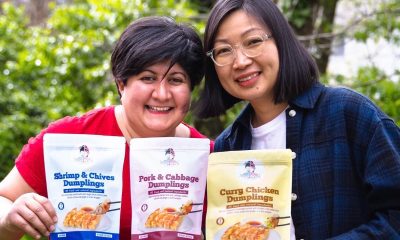Arts & Entertainment
Female-forward movement takes root in D.C.’s culinary scene
Re:Her raises thousands for local female-identified businesses
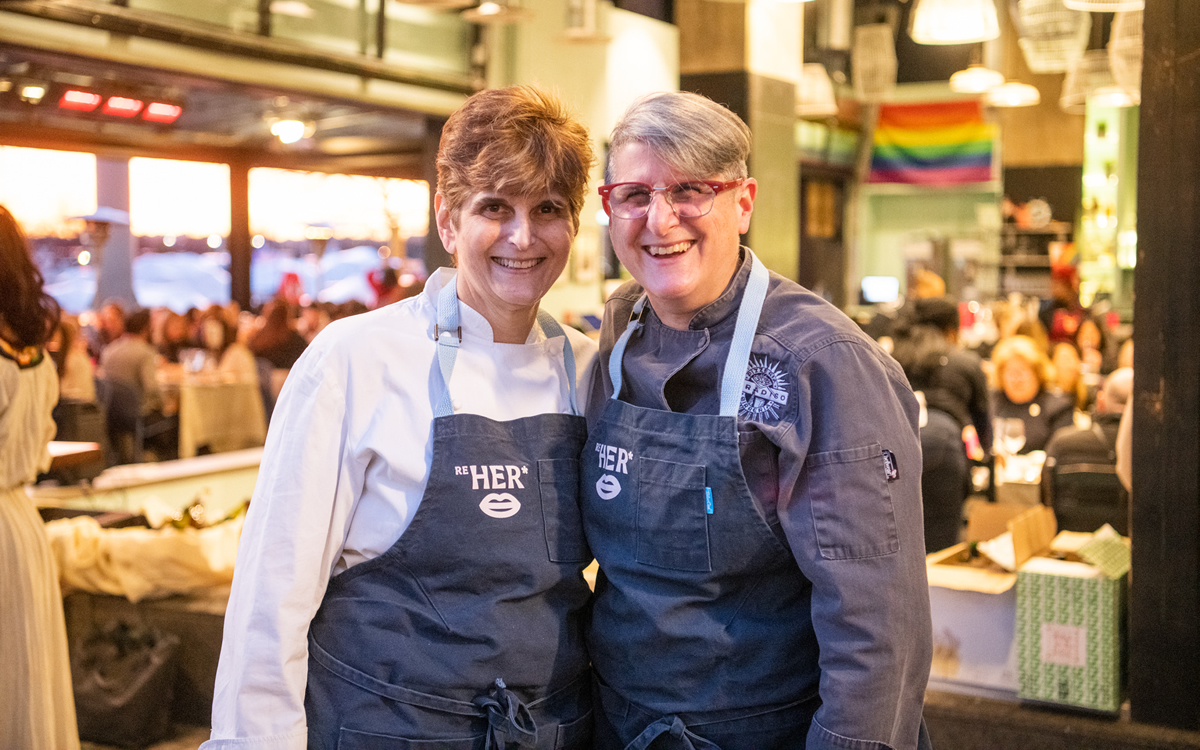
Connection and collaboration, inclusion and equity: a new female-forward grassroots movement in the culinary field has taken root in D.C.
Working to “empower and advance women food and drink entrepreneurs,” Regarding Her (Re:Her) Food began in Los Angeles in the midst of the pandemic in the summer of 2020. In March, the organization launched its second chapter here in D.C. through a two-week festival of dinners, discussions, and other events – and it will continue to blossom on May 2 at an outdoor Spring Market on 14th Street.
“As a response to the pandemic, we [in D.C.] informally began to facilitate communication among women food business owners,” says founding member of the D.C. chapter, longtime culinary leader, and owner of Pizzeria Paradiso, Ruth Gresser (she identifies as a lesbian). “Within just a few months, we created a strong network of monthly calls and regular collaborations. It is a space where women can come together in a very honest, open, and communal way.” After learning about similar efforts by Re:Her in Los Angeles, they joined forces to formalize their efforts.
For women in the food business, Gresser explains, “there are two fundamental challenges: access to capital and recognition.”
While this lack of access is a systemic concern, Gresser says, the pandemic only reinforced it. Re:Her LA wasted no time in confronting these challenges and supporting female-identifying businesses: by July 2021, it had distributed $150,000 in small grants. The D.C. launch in March 2022 also raised thousands of dollars to support its programs.
Beyond small business grants, Re:Her DC will focus its efforts on offering mentorship and other resources that directly benefit women in the culinary arts. Gresser notes that Re:Her will also work to support other issues important to women business owners, like pay gaps, childcare, and safe workplace environments. “We’re helping develop a more equitable future for women,” she says.
When Gresser launched her career 40 years ago in San Francisco, she came out as a lesbian at the same time. Moving to D.C. in the 1980s, she found a less welcoming environment in the food world. Yet she was soon able to open her own restaurant, Pizzeria Paradiso, ensuring that she could create the safe, inclusive work environment that she envisioned. Through Re:Her, “I can help create a future in which women in the industry have parity and equity.”
Another founding member, Jamie Leeds (a former Washington Blade Most Eligible Single), noted that, “straight or gay, any woman would benefit from becoming a member of this group. There are so few places to have this level of professionalism to be able to tap into, get advice, and commiserate.”
With Gresser, Leeds, and other members of the LGBTQ community in leadership positions at Re:Her DC, this opened the door to ensuring that Re:Her is a safe, open space, and could reach out to underrepresented groups – the LGBTQ community included.
“The Re:Her DC group is a safe space to talk about things happening in our personal lives,” says member Shannan Troncoso, chef/owner of Brookland’s Finest. “I have been able to talk with other lesbian-identifying women (and with straight women) about family planning, fertility, and adoption.”
Gresser points out that the “LGBTQ community faces more disadvantages, so we are reaching out to try to get businesses that do identify as part of community to engage with us.”
Re:Her states that empowering women creates a platform for growth while addressing inequality, social reform, and political awareness within our cities and neighborhoods. The D.C. chapter is open to all female restaurateurs, chefs, caterers, bakers, distillers, winemakers, bar owners, food truck operators, and other hospitality industry businesswomen.
Coming off the successful March launch, Re:Her DC is hosting the upcoming Bites & Libations and Outdoor Spring Market at female-owned Cork Wine Bar & Market the evening of May 2. The food, drink, and artisan offerings all come from Re:Her members.
“Regarding Her is an incredible community organization for women,” says Julie Verratti, owner of Denizen’s Brewing, and part of the LGBTQ community. “Representation matters and being able to be your full self amongst your peers is a privilege. I am so grateful to be a part of this group and can’t wait to meet more women being their authentic selves and excelling in their careers.”
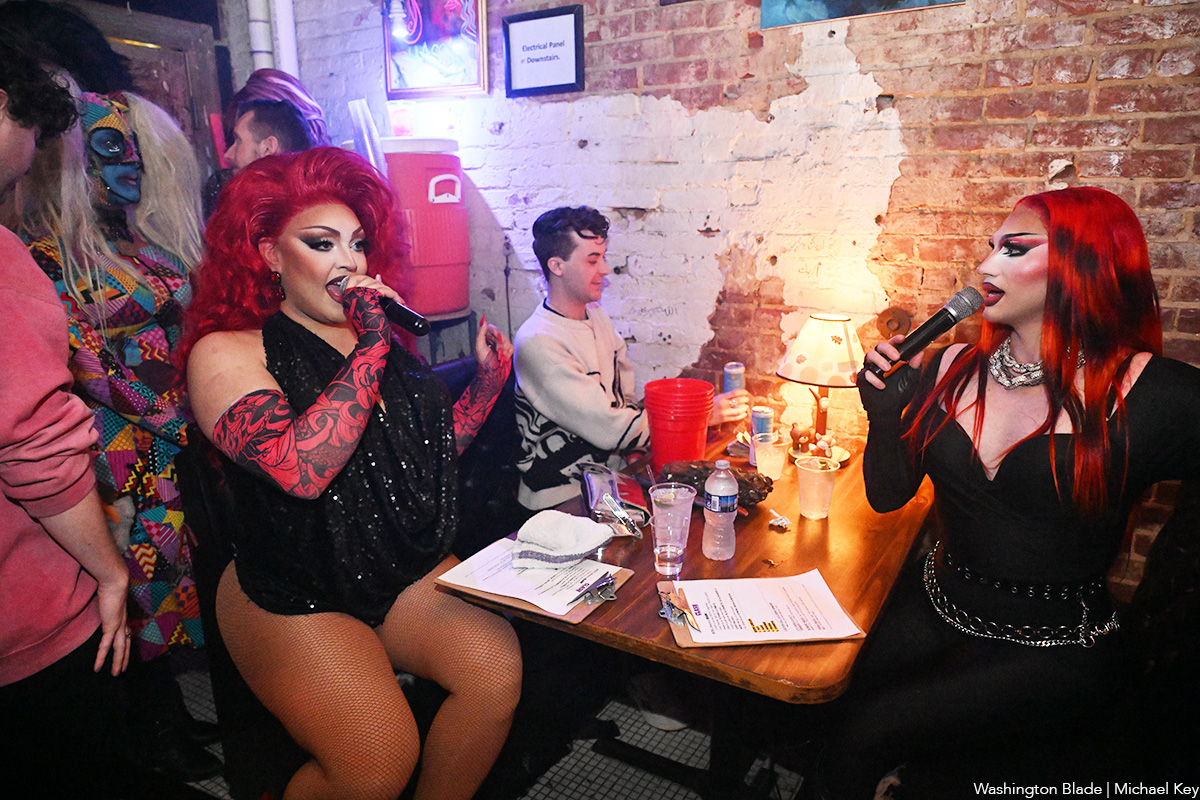
Crimsyn and Tatianna hosted the new weekly drag show Clash at Trade (1410 14th Street, N.W.) on Feb. 14, 2026. Performers included Aave, Crimsyn, Desiree Dik, and Tatianna.
(Washington Blade photos by Michael Key)
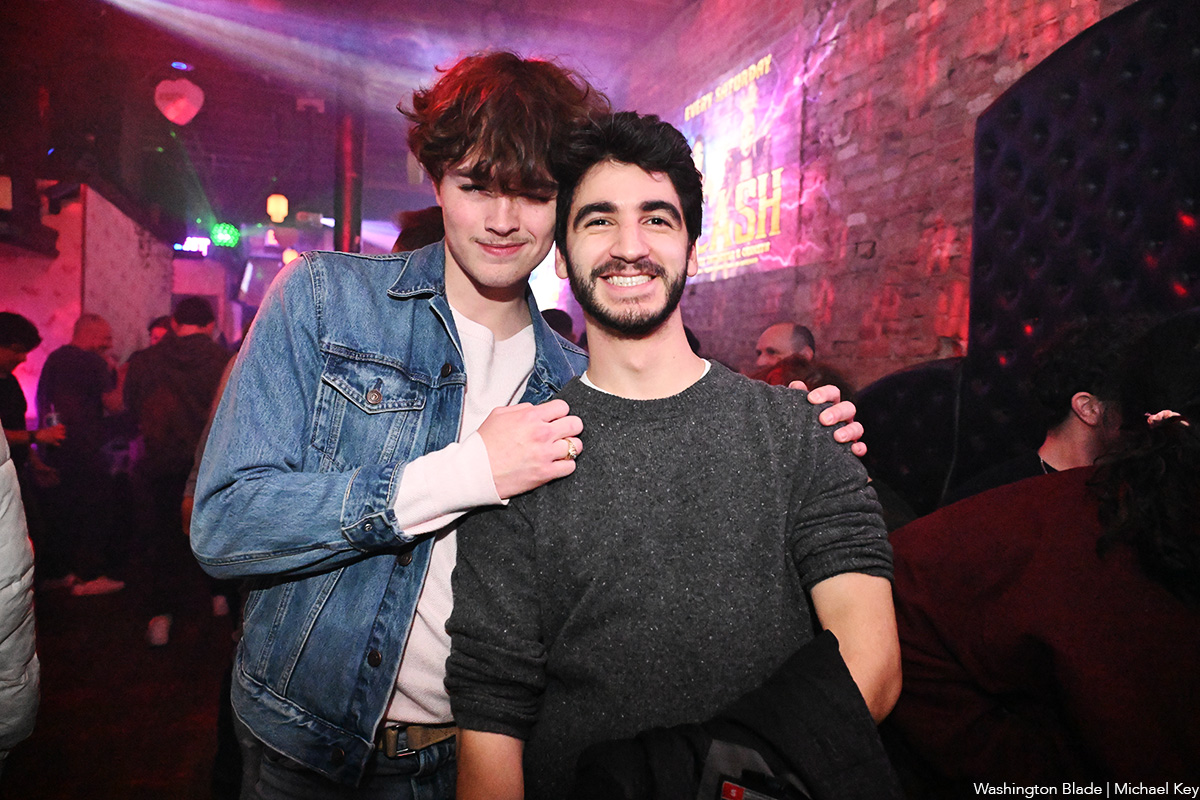
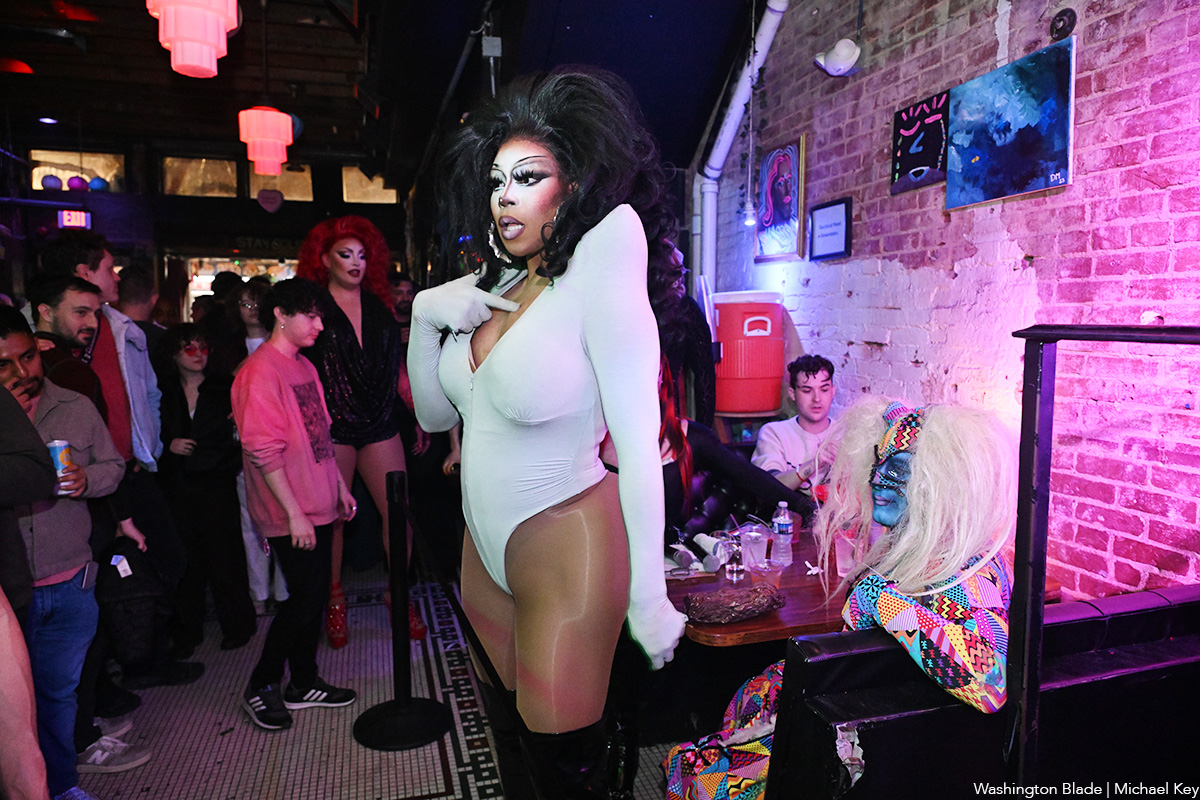
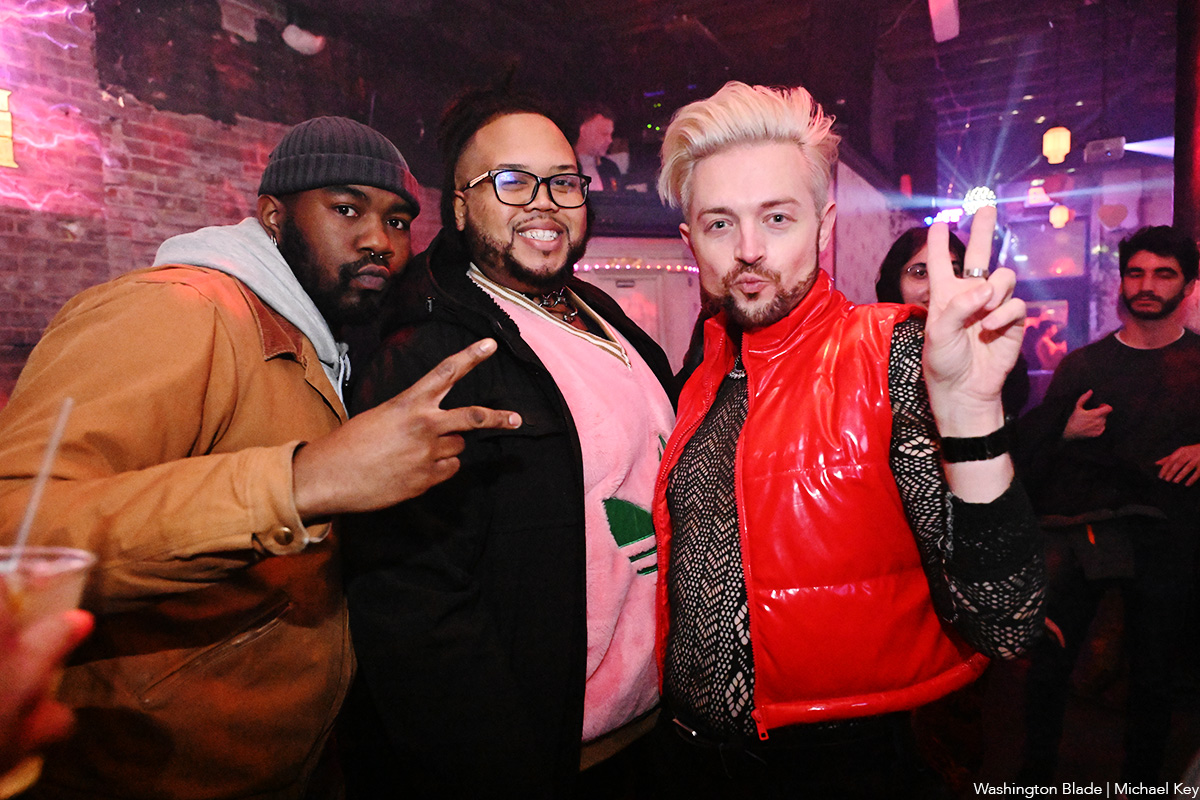
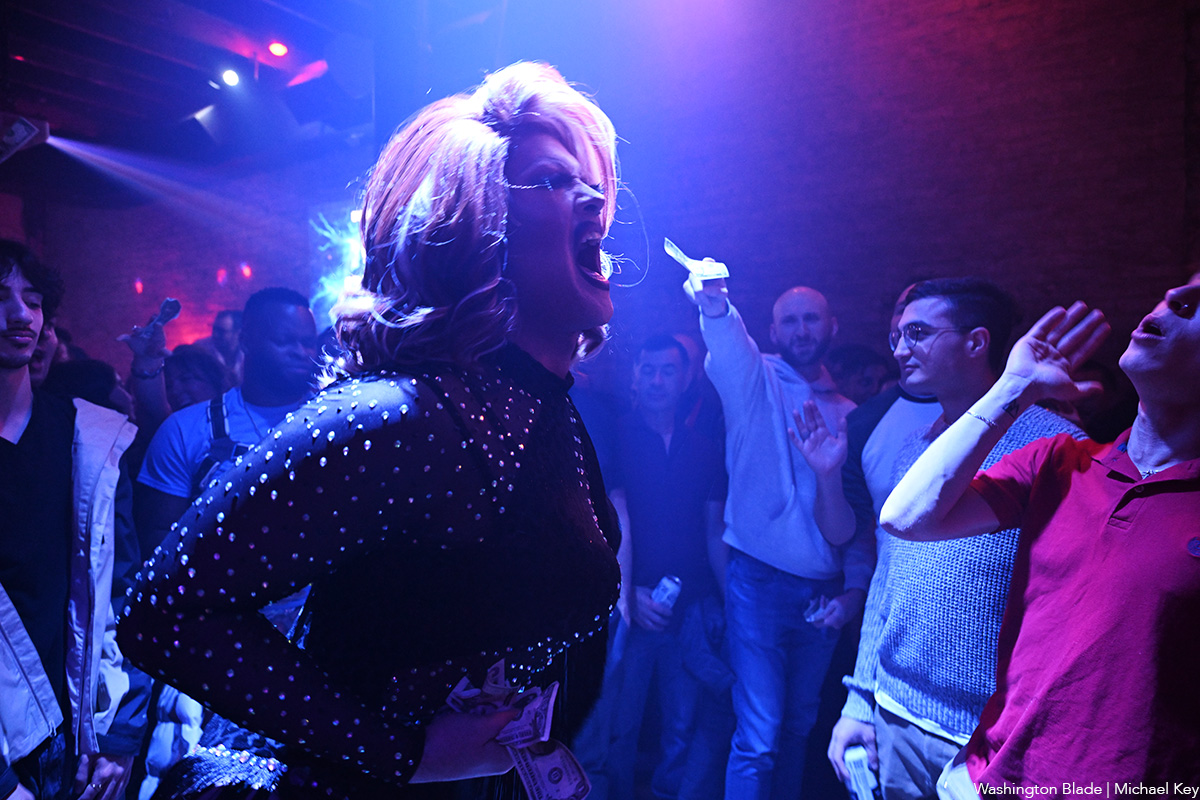
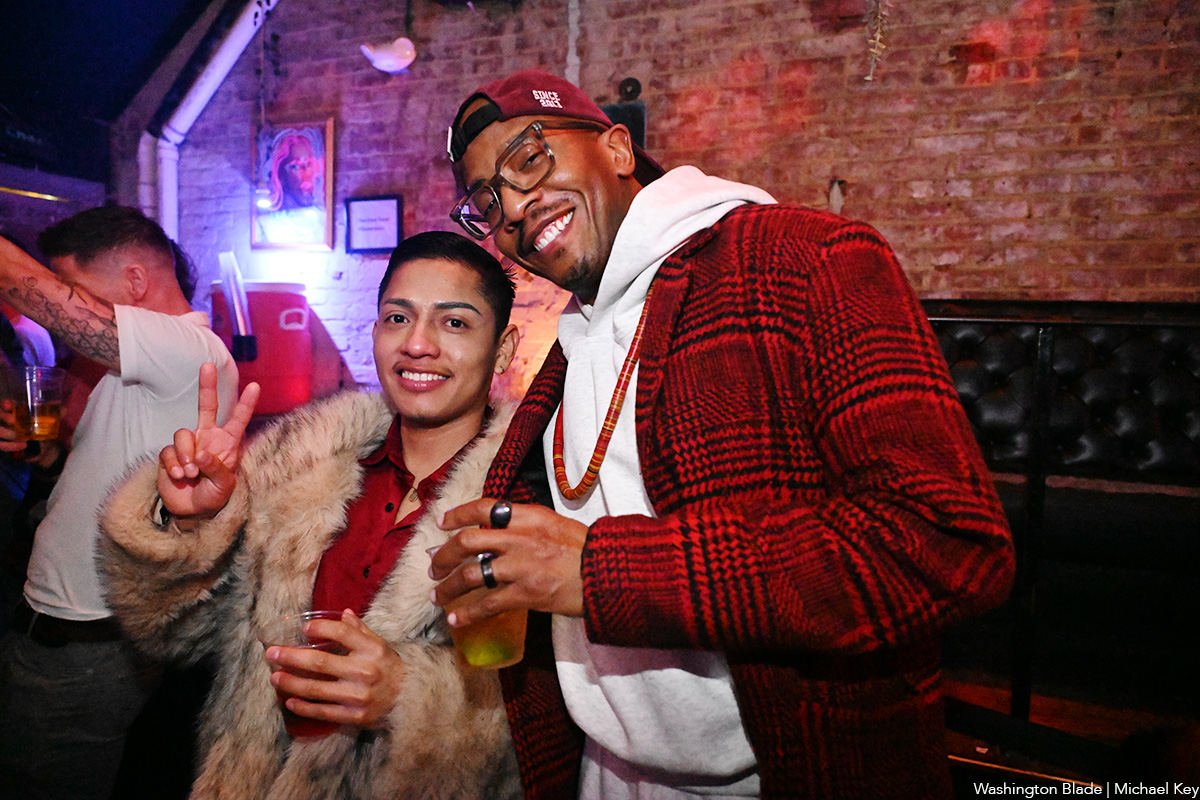
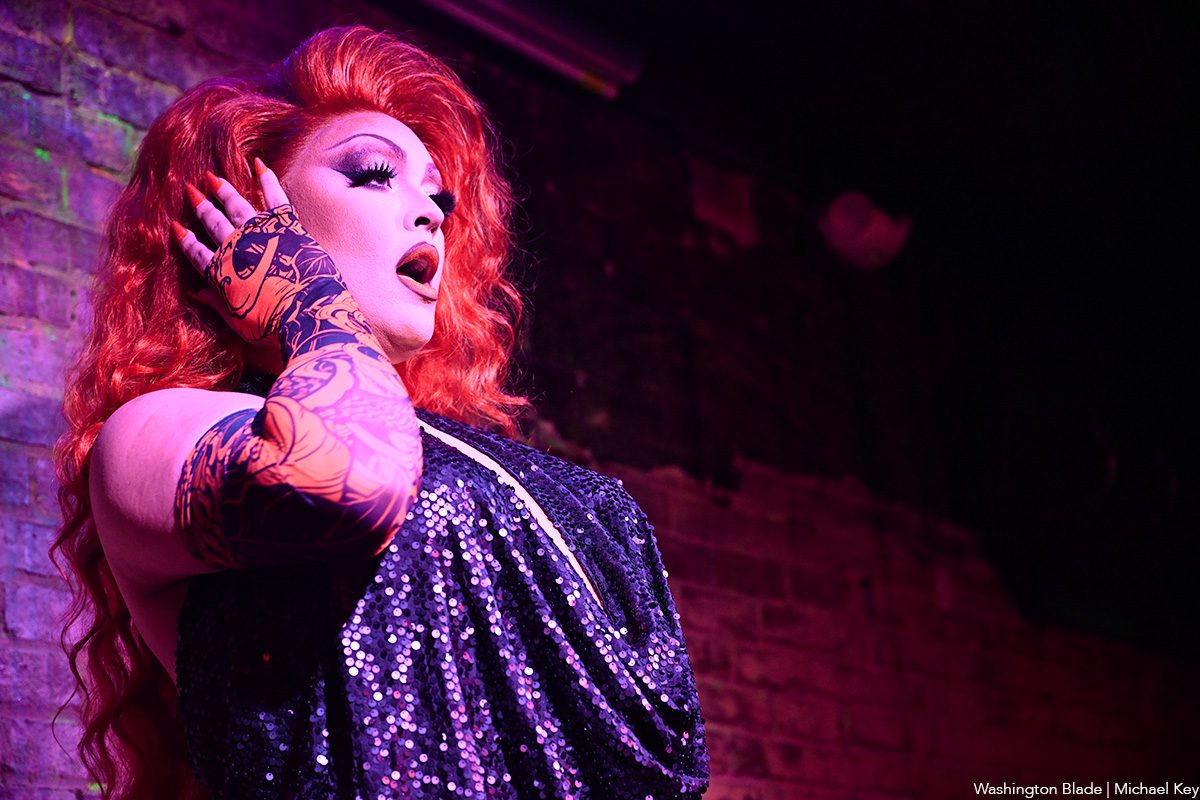
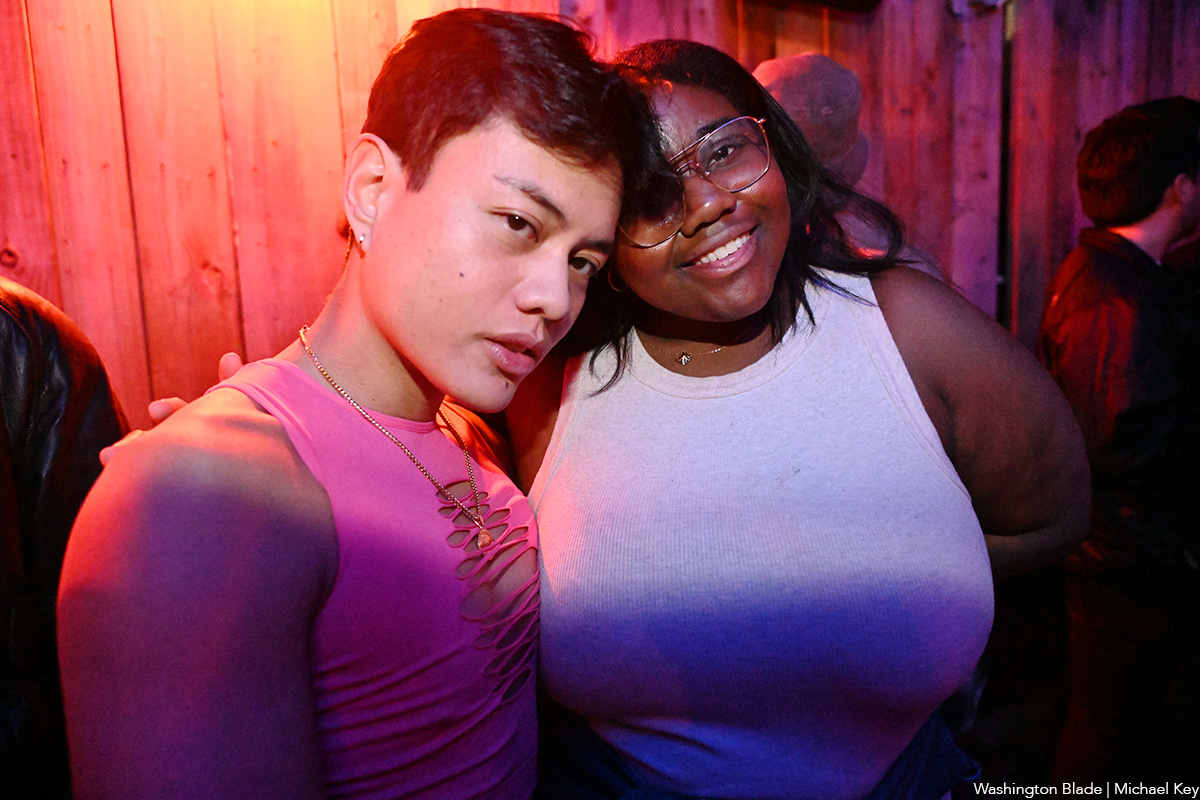
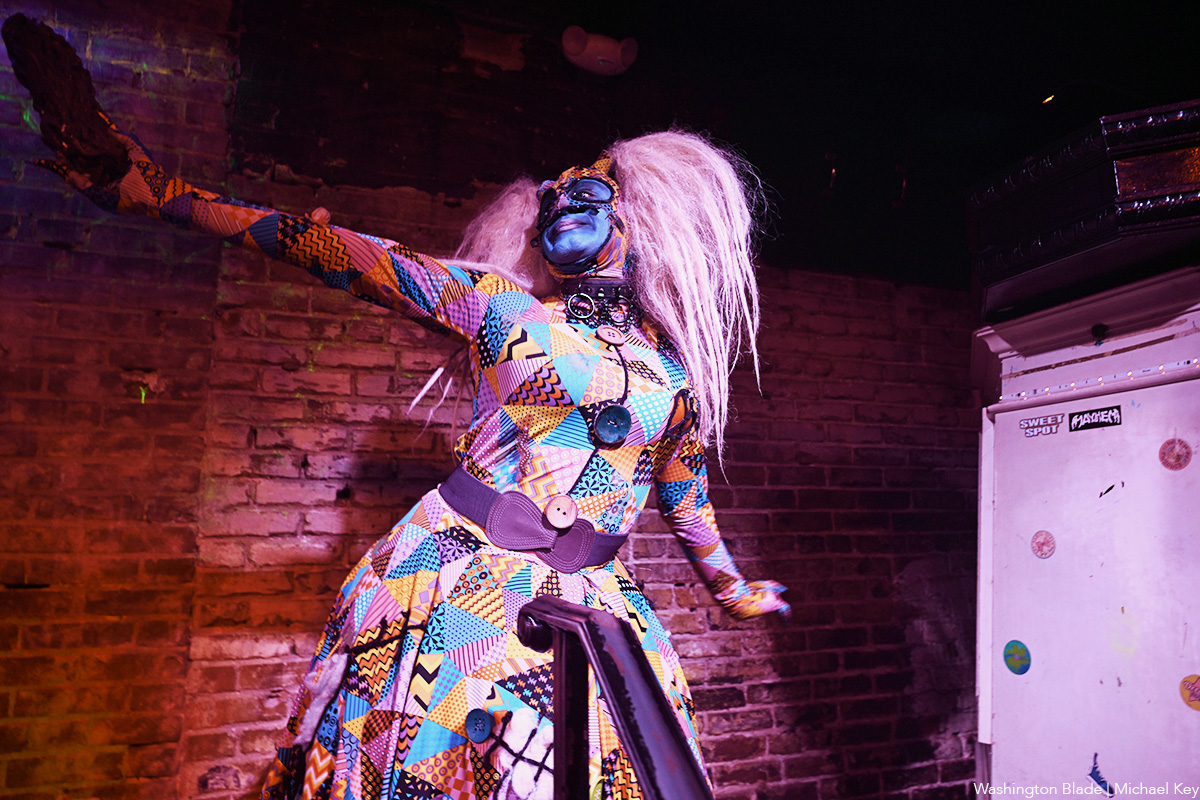
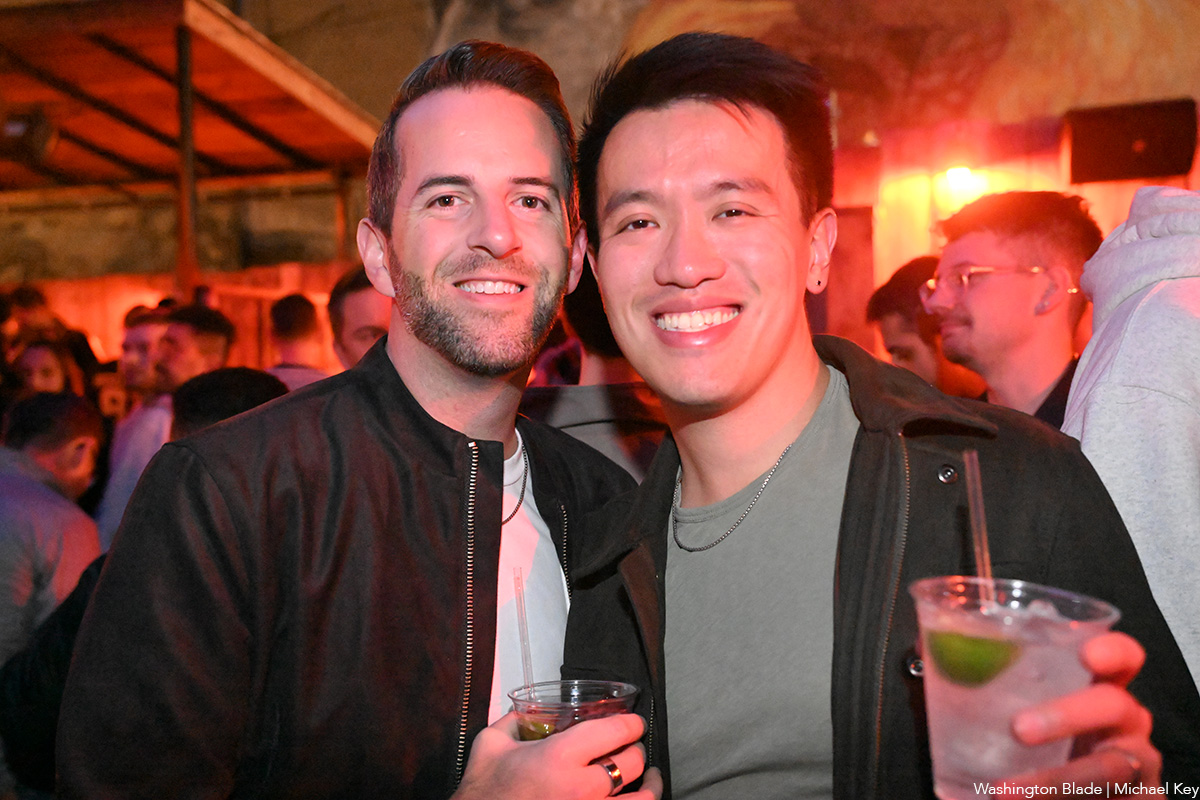
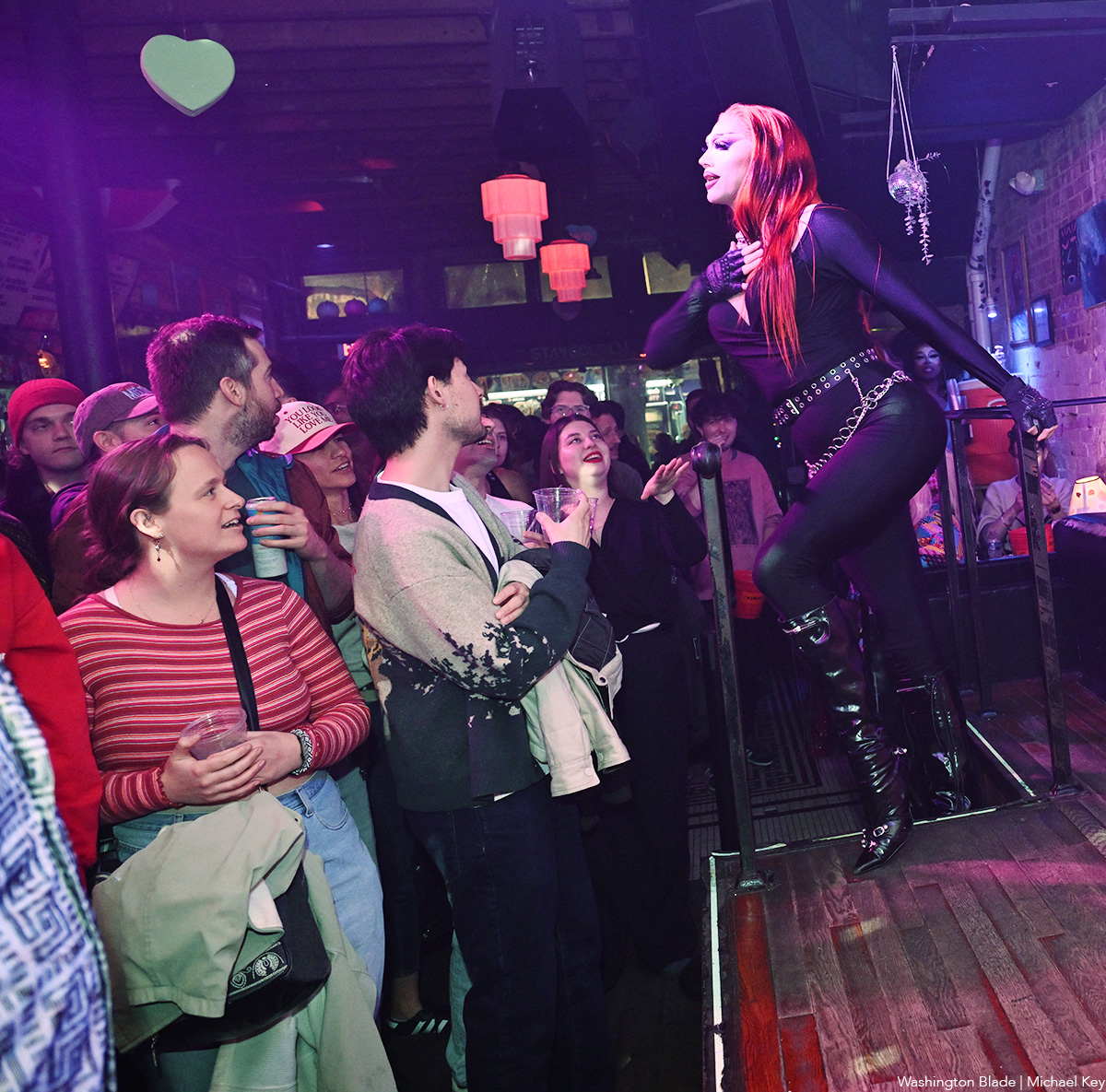
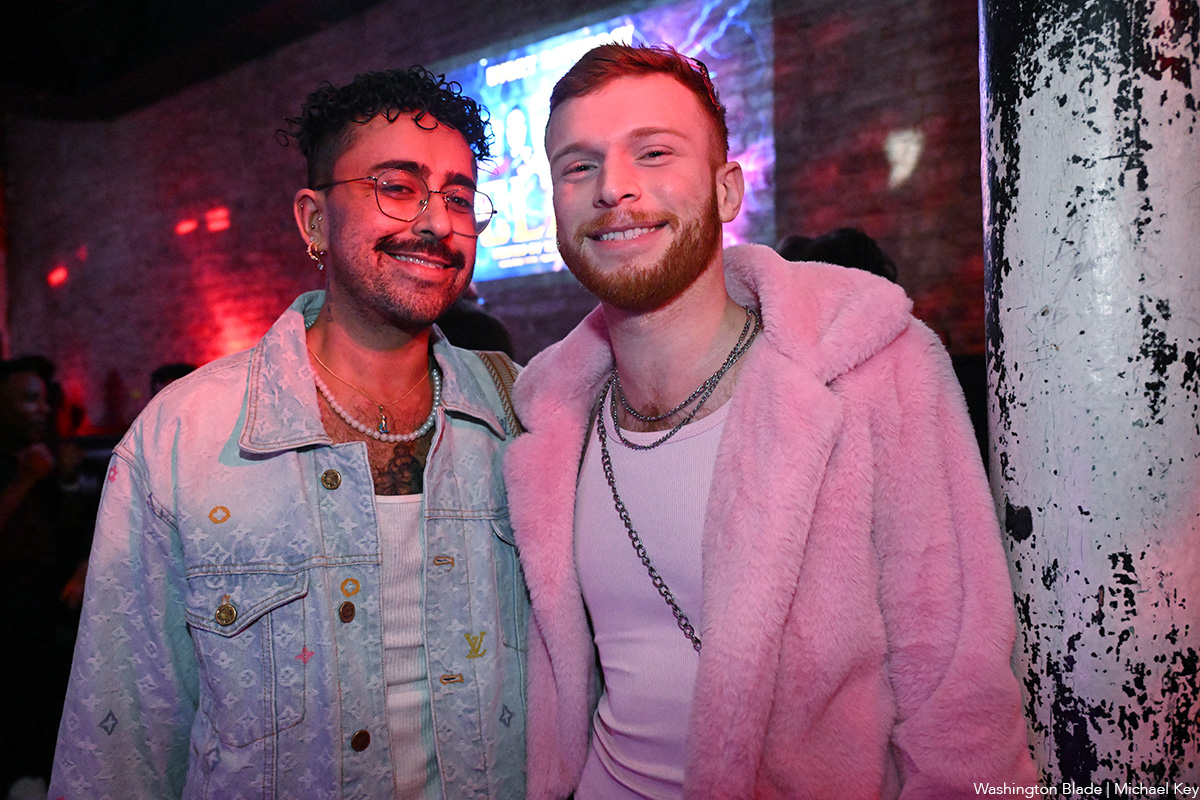
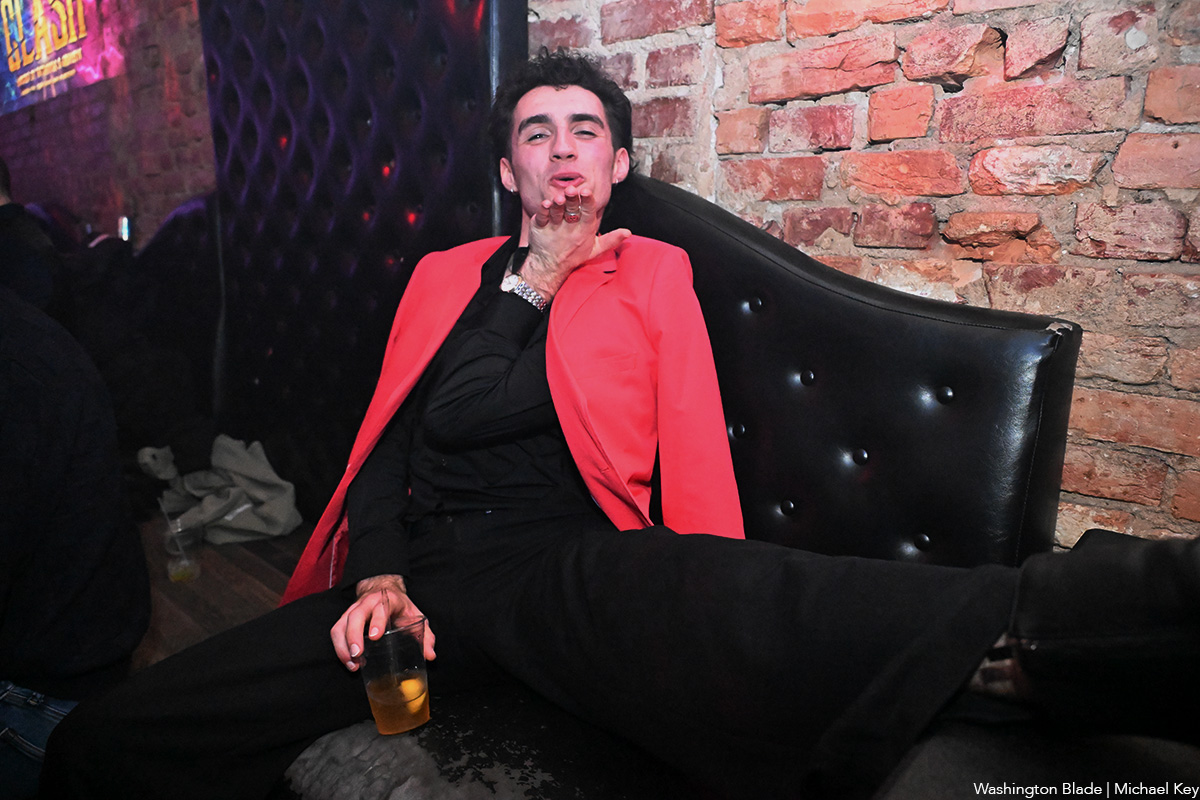
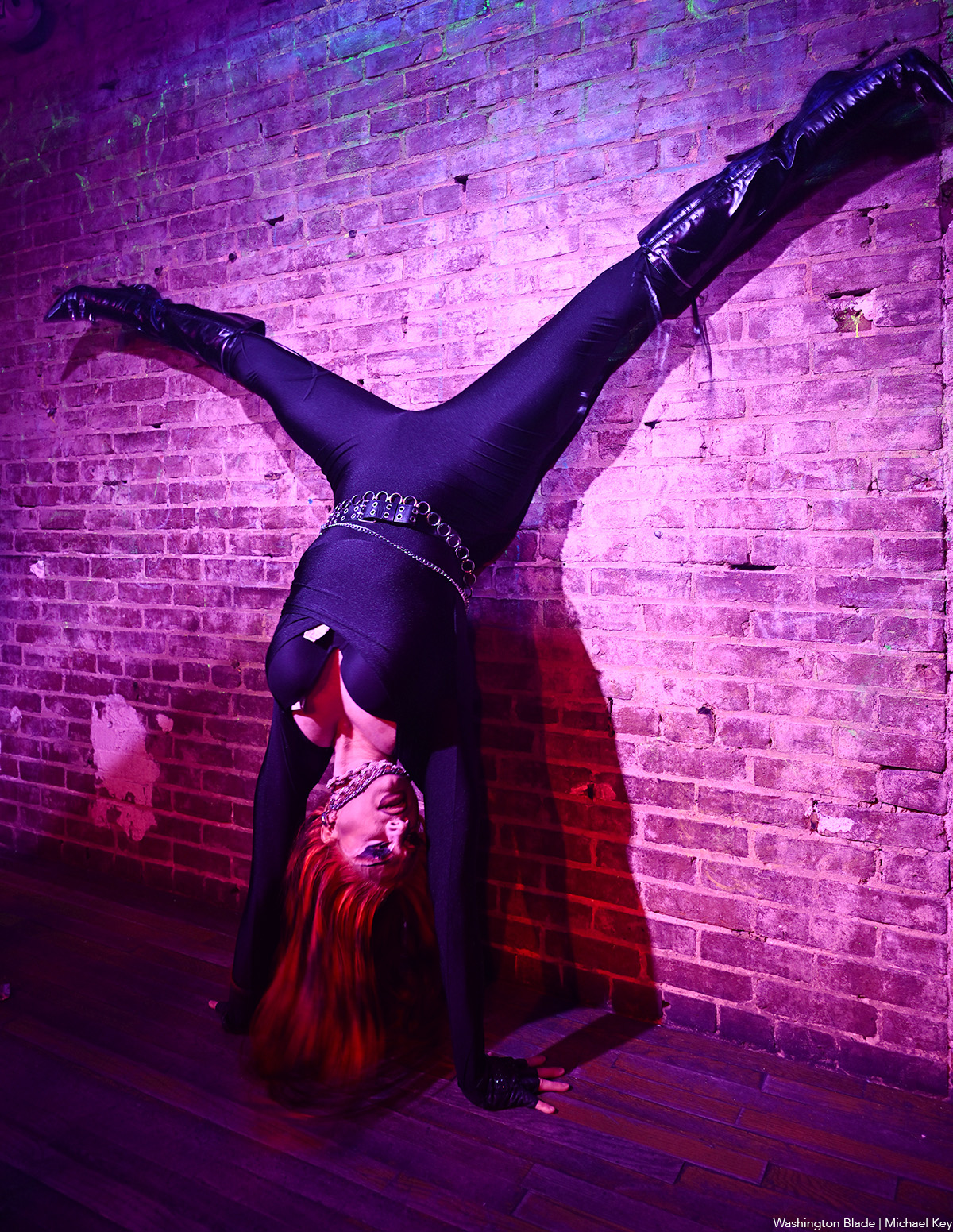
Theater
Magic is happening for Round House’s out stage manager
Carrie Edick talks long hours, intricacies of ‘Nothing Up My Sleeve’

‘Nothing Up My Sleeve’
Through March 15
Round House Theatre
4545 East-West Highway
Bethesda, Md. 20814
Tickets start at $50
Roundhousetheatre.org
Magic is happening for out stage manager Carrie Edick.
Working on Round House Theatre’s production of “Nothing Up My Sleeve,” Edick quickly learned the ways of magicians, their tricks, and all about the code of honor among those who are privy to their secrets.
The trick-filled, one-man show starring master illusionist Dendy and staged by celebrated director Aaron Posner, is part exciting magic act and part deeply personal journey. The new work promises “captivating storytelling, audience interaction, jaw-dropping tricks, and mind-bending surprises.”
Early in rehearsals, there was talk of signing a non-disclosure agreement (NDA) for production assistants. It didn’t happen, and it wasn’t necessary, explains Edick, 26. “By not having an NDA, Dendy shows a lot of trust in us, and that makes me want to keep the secrets even more.
“Magic is Dendy’s livelihood. He’s sharing a lot and trusting a lot; in return we do the best we can to support him and a large part of that includes keeping his secrets.”
As a production assistant (think assistant stage manager), Edick strives to make things move as smoothly as possible. While she acknowledges perfection is impossible and theater is about storytelling, her pursuit of exactness involves countless checklists and triple checks, again and again. Six day weeks and long hours are common. Stage managers are the first to arrive and last to leave.
This season has been a lot about learning, adds Edick. With “The Inheritance” at Round House (a 22-week long contract), she learned how to do a show in rep which meant changing from Part One to Part Two very quickly; “In Clay” at Signature Theatre introduced her to pottery; and now with “Nothing Up My Sleeve,” she’s undergoing a crash course in magic.
She compares her career to a never-ending education: “Stage managers possess a broad skillset and that makes us that much more malleable and ready to attack the next project. With some productions it hurts my heart a little bit to let it go, but usually I’m ready for something new.”
For Edick, theater is community. (Growing up in Maryland, she was a shy kid whose parents signed her up for theater classes.) Now that community is the DMV theater scene and she considers Round House her artistic home. It’s where she works in different capacities, and it’s the venue in which she and actor/playwright Olivia Luzquinos chose to be married in 2024.
Edick came out in middle school around the time of her bat mitzvah. It’s also around the same time she began stage managing. Throughout high school she was the resident stage manager for student productions, and also successfully participated in county and statewide stage management competitions which led to a scholarship at the University of Maryland, Baltimore County (UMBC) where she focused on technical theater studies.
Edick has always been clear about what she wants. At an early age she mapped out a theater trajectory. Her first professional gig was “Tuesdays with Morrie” at Theatre J in 2021. She’s worked consistently ever since.
Stage managing pays the bills but her resume also includes directing and intimacy choreography (a creative and technical process for creating physical and emotional intimacy on stage). She names Pulitzer Prize winning lesbian playwright Paula Vogel among her favorite artists, and places intimacy choreographing Vogel’s “How I learned to Drive” high on the artistic bucket list.
“To me that play is heightened art that has to do with a lot of triggering content that can be made very beautiful while being built to make you feel uncomfortable; it’s what I love about theater.”
For now, “Nothing Up My Sleeve” keeps Edick more than busy: “For one magic trick, we have to set up 100 needles.”
Ultimately, she says “For stage managers, the show should stay the same each night. What changes are audiences and the energy they bring.”

Friday, February 13
Center Aging Monthly Luncheon With Yoga will be at noon at the DC Center for the LGBT Community. Email Mac at [email protected] if you require ASL interpreter assistance, have any dietary restrictions, or questions about this event.
Go Gay DC will host “LGBTQ+ Community Happy Hour Meetup” at 7 p.m. at Freddie’s Beach Bar and Restaurant. This is a chance to relax, make new friends, and enjoy happy hour specials at this classic retro venue. Attendance is free and more details are available on Eventbrite.
Women in their Twenties and Thirties will be at 7 p.m. on Zoom. This is a social discussion group for queer women in the D.C. area. For more details, visit the group on Facebook.
Saturday, February 14
Go Gay DC will host “LGBTQ+ Community Brunch” at 11 a.m. at Freddie’s Beach Bar & Restaurant. This fun weekly event brings the DMV area LGBTQ community, including allies, together for delicious food and conversation. Attendance is free and more details are available on Eventbrite.
The DC Center for the LGBT Community will host a screening of “Love and Pride” at 1:30 p.m. This event is a joy-filled global streaming celebration honoring queer courage, Pride, and the power of love. It’s a bold celebration of courage and community — a fearless reminder of what we’ve overcome, how love is what makes us unstoppable, and how we have always turned fear into fierce. For more details, visit the Center’s website.
Sunday, February 15
LGBTQ+ Community Coffee and Conversation will be at 12 p.m. at As You Are. This event is for people looking to make more friends and meaningful connections in the LGBTQ community. Attendance is free and more details are available on Eventbrite.
Monday, February 16
Queer Book Club will be at 7:00p.m. on Zoom. This month’s read is “Faebound” by Saara El-Arifi. For more details, visit the DC Center’s website.
“Center Aging: Monday Coffee Klatch” will be at 10 a.m. on Zoom. This is a social hour for older LGBTQ+ adults. Guests are encouraged to bring a beverage of choice. For more information, contact Adam ([email protected]).
Tuesday, February 17
Center Bi+ Roundtable will be at 7 p.m. on Zoom. This is an opportunity for people to gather in order to discuss issues related to bisexuality or as Bi individuals in a private setting.Visit Facebook or Meetup for more information.
Wednesday, February 18
Job Club will be at 6 p.m. on Zoom upon request. This is a weekly job support program to help job entrants and seekers, including the long-term unemployed, improve self-confidence, motivation, resilience and productivity for effective job searches and networking — allowing participants to move away from being merely “applicants” toward being “candidates.” For more information, email [email protected] or visit thedccenter.org/careers.
Thursday, February 19
The DC Center’s Fresh Produce Program will be held all day at the DC Center for the LGBT Community. To be fair with who is receiving boxes, the program is moving to a lottery system. People will be informed on Wednesday at 5 p.m. if they are picked to receive a produce box. No proof of residency or income is required. For more information, email [email protected] or call 202-682-2245.
Virtual Yoga Class will be at 7 p.m. on Zoom. This free weekly class is a combination of yoga, breath work and meditation that allows LGBTQ+ community members to continue their healing journey with somatic and mindfulness practices. For more details, visit the DC Center’s website.

